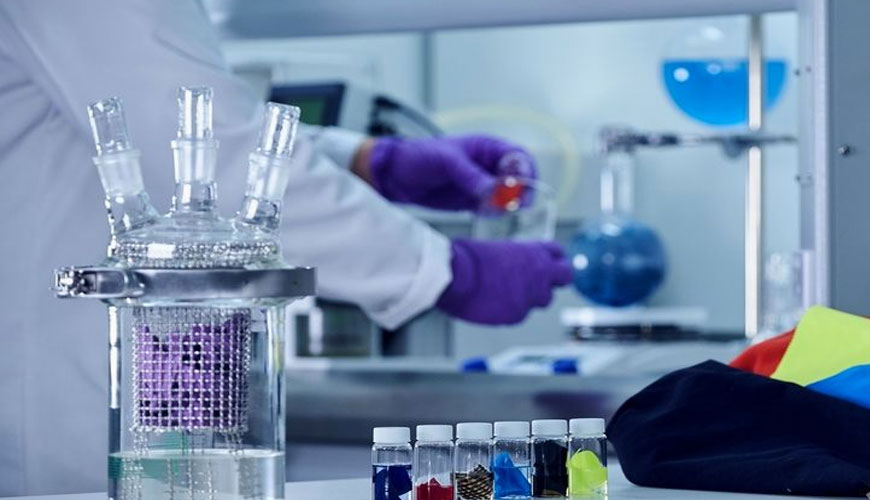

DIN 54233-4, a German standard, provides a test method for the determination of antimony, arsenic, cadmium, chromium, cobalt, copper, lead, mercury and nickel in natural and synthetic textile fibers after extraction with a synthetic saliva solution. This standard is for the determination of heavy metals mentioned in natural and synthetic textile materials.

Detection of heavy metals is an extremely important issue in the textile industry in terms of both the environment and human health, the safety of workers and end users exposed during the production process, in order to develop a standard method to help identify textile products and to test the selected extraction conditions. These laboratory studies include many analytical steps that affect the quantitative evaluation.
The test method presented in the DIN 54233-4 standard is applied to textile materials dyed at different concentrations. Extraction is carried out through artificial sweat solution according to this standard adopted by the most important textile eco-labelling schemes implemented especially in European Union countries.
During the test, the extract is filtered under vacuum and analyzed, for example, by atomic absorption spectrometry for total chromium and UV-visible spectroscopy for hexavalent chromium. The tests are carried out by changing some extraction parameters such as temperature of the solution, contact time and material ratio extraction. The results show that the total amount of chromium extracted is mainly affected by the temperature of the solution and the material ratio extraction and contact time.
In recent years, interest in the toxicological and ecotoxicological properties of textile products has been increasing. Considering the interaction of textiles with human skin, the chemical content in textile manufacturing companies causes allergenic and toxic effects and poses a health hazard for consumers.
Heavy metals are often used in different textile processes such as dyeing and printing. First of all, metal complex paints contain heavy metals. Fast black dyeing, especially on wool and nylon, is done using chrome-based paint. One of the most widely used paints in the world is chrome paint, and chrome is nowadays being replaced by newly developed paints containing less toxic metals such as iron.
Determining the metal content of different textile materials is very important not only for the safety of workers exposed during the production process, but also for consumers. The toxic effects of heavy metals on human safety are now well known. Heavy metals have negative effects on metabolism, damage organs and cause heart disease, nervous system disorders and allergies. It also accumulates in body tissues and disrupts the proper functioning of cells.
EUROLAB assists manufacturers with DIN 54233-4 test compliance. Our test experts, with their professional working mission and principles, provide you, our manufacturers and suppliers, the best service and controlled testing process in our laboratories. Thanks to these services, businesses receive more effective, high-performance and quality testing services and provide safe, fast and uninterrupted service to their customers.
To get an appointment, to get more detailed information or to request an evaluation, you can ask us to fill in our form and reach you.